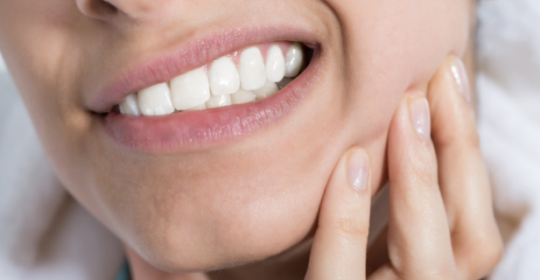
How Do I Stop Grinding My Teeth in My Sleep?
Everyone grinds or clenches their teeth on occasion – normally as a response to something that has frustrated or agitated us. This infrequent grinding, which is something that we control and that we understand the cause of, is not an issue for us or our dental health.
However, if you find your teeth grinding more frequently than they should, or when you are sleeping, this is a condition caused by bruxism, and it can cause complications to your overall oral health.
What Causes Me to Grind My Teeth?
Frequent teeth grinding has many possible causes, and has been linked to stress and anxiety, as well as heavy alcohol and caffeine consumption, depression, and sleep disorders. Although these could be the reason for your nocturnal grinding, it is most likely that it is the result of a misaligned bite or crooked teeth. Other possible causes include heavy snoring and sleep apnea.
Due to the range of potential causes, there is no single fix for bruxism.
How Do I Know I’m Doing It in My Sleep?
Aside from tossing and turning occasionally, most people aren’t aware of what their bodies do while sleeping, which means they are also unaware that they have been grinding their teeth while they snooze.
One of the most sure signs that you have been grinding your teeth during sleep is a constant, dull headache or a soreness in the jaw upon waking up. You might also be alerted to the problem by someone sharing the room with you who can hear the grinding.
What Are the Effects of Teeth Grinding?
The severity with which your grind your teeth can cause varying results. If your grinding is mild, you might experience headaches and earaches, jaw pain, sensitive teeth, and damage to the inside of your cheeks. More severe cases could lead to Chronic mouth and ear pain, worn-out tooth enamel, tongue indentations and worn down teeth.
If severe grinding is left untreated, it can result in fractured or loosened teeth, or loss of teeth completely. You are also at risk of your teeth being work down to stumps, requiring you to have bridges, crowns, root canals, implants, and potentially dentures to resolve the issue.
How Can It Be Treated?
The best course of action if you believe you may be suffering from bruxism is to make an appointment with your dentist. They will be able to inform you of any misalignments in your jaw, and alert you to any signs that grinding has occurred, such as tenderness in the jaw or excessive wear on the teeth. They will also be able to suggest the best course of action to prevent future grinding – whether this is through oral splints or a mouth guard to protect your teeth during sleep.
If you believe your grinding may be the result of stress or anxiety, avoid caffeine and alcohol and try not to chew on pens or chewing gum to reduce the clenching sensation in your mouth. Relaxing your jaw muscles at night by holding a warm cloth to your cheeks may also help to relieve grinding during the night.
If you think you may be suffering from bruxism, set up an appointment today to find out how we can help you.
Leave a reply →
Most Commented